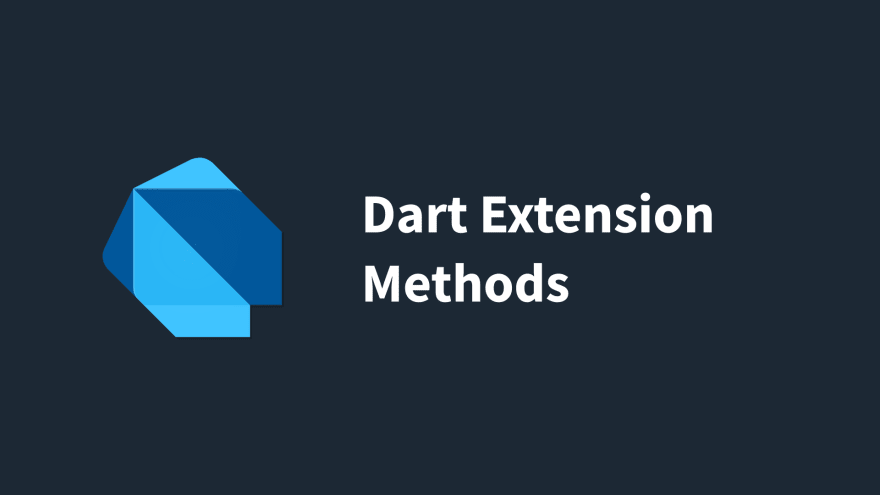Welcome devs, have you tried your hands at extensions methods? Dart recently announced support for extension methods (from Dart 2.7) and extension properties.
Extension methods are a way to add functionality to existing libraries. When you are using someone else’s library it’s often impractical/impossible to change the API. But you can extend it using extension methods.
What are extension methods?
Consider the following code that parses a string into an integer:
int.parse('42')
Won’t it look cleaner/better if this functionality was available on String class like below?
'42'.parseInt()
Since the language (where class String comes from) doesn’t provide such a method we can’t parse a string to an int like that. Extension methods allow us to specify such custom functionalities not provided by the library (Dart language in this case). Let’s see how to do that in next section.
Writing a basic extension method
So we want to have a method parseInt on String class which would parse the given string to integer.
'42'.parseInt()
For that we will define an extension method on String like this
// File: extension_methods.dart
extension StringExtras on String {
int parseInt() {
return int.parse(this);
}
// We can also define getters as extensions
int get doubleLength => length * 2;
}
Here we have named this set of extension methods as StringExtras, you can name them anything you like.
Note: As you might have noticed above, we can define multiple extension methods/getters under a single extension block.
Using the extension method
Extension methods (once imported) can be used just like any member method on that class’s object. Our example would go like this
import 'extension_methods.dart';
void main() {
print('42'.parseInt() + 8); // Would print 50
}
Similarly we can use the getters too
import 'extension_methods.dart';
void main() {
print('42'.doubleLength); // Would print 4
}
Important Notes
- Extension methods don’t work with the type
dynamic. However they do work with Dart’s type inference. - Since extension methods are resolved statically, they’re as fast as calling a static function.
- Extension methods can’t access private members of the class.
- If an extension member has a name conflict then you should refer here for your options.
- You can define extension methods on classes which take generic type parameters (for example
List<T>). Refer this section for further details.
Reference
Official release documentation - https://dart.dev/guides/language/extension-methods
Want to discuss this or any other interesting thing, hit me up on Twitter @varun_barad



Top comments (0)